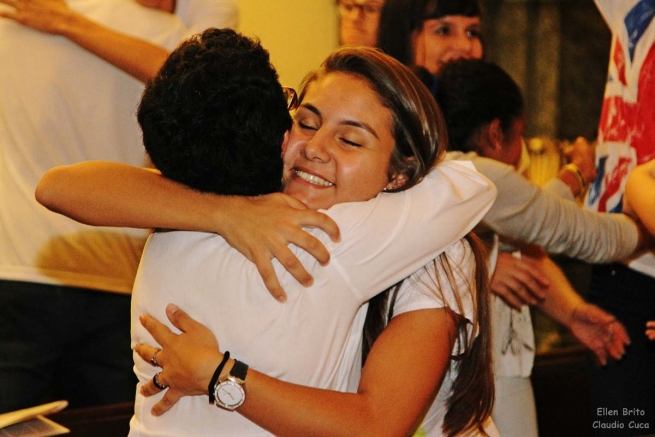What sense has the death of so many innocent people in the name of God?
Is violence part of religion?
What should our stance be in this climate of violence?
We ask these questions out of our fraternal support for the many families who have seen the deaths of loved ones for whom now they can only mourn.
After these events a deeper question affects our heart and mind: how many times should we forgive? For how long is it possible to forgive? There is the temptation to violence, to respond in kind.
Pope Francis reminds us that "peace has a face and a heart: the face and the heart of Jesus, the Son of God, who died on the Cross and rose precisely to give peace to each man and woman and to all mankind. Jesus is “our peace” (Eph 2:14), for He has broken down the wall of hatred that divided men among themselves." (Pope Francis, 11 May 2015).
As Christians our vocation calls us to build spaces and opportunities for life and growth, not for destruction. We reject all kinds of violence by sowing seeds of love.
In our Salesian Family there are countless examples of people who are committed to building a culture of peace and life. To name a few: our brothers in Juba, in South Sudan, have opened the doors of the chapel to accommodate many people who are displaced by war. Our brothers in Syria have opened spaces of joy and education in the midst of war and destruction. Our brothers in Colombia educate former child- soldiers to peace and respect, and try to offer them a better future.
Towards the end of the 19th century there were difficult times in Italy, times of war and division. Many people appealed frequently to Don Bosco about their fears for the fragile situation of the Church in Piedmont. The option proposed by Don Bosco was clear and it is a valid model for dealing with such situations. His approach was "to build links and above all to be family." The result of this insight was the Oratory, which was founded and has been recognized as a much loved meeting place and a home for the needy, a space which transcends ideological and religious divisions of the present moment and opens its doors to become a home for all. The oratory is a model of dialogue and coexistence for all and at the same time, it is a call to service.


